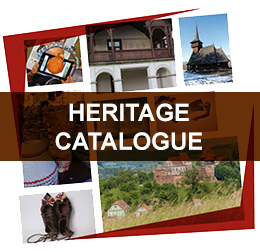
Latest news all news
-
16 Nov. 2017
Results brochure PA16/RO12 -
22 Aug. 2017
Facts regarding the Aromanian heritage -
17 Aug. 2017
Fortified churches (video)
Public procurement
- More information will be available soon
Follow us on Facebook
Digitization of medieval documents from the National Archives of Romania - University of Bucharest
Website Facebook pageProject Promoter: University of Bucharest
Project Partner:
- National Archives of Romania
- “Babeș-Bolyai” University in Cluj-Napoca
- National Archives of Norway
Project duration: 29 months, but no later than 30.04.2017
Grant amount: RON 3,942,848.08, i.e. EUR 891,946.17
The University of Bucharest has the leading role, since it is the author of the initiative and base concept of the project. It provides both technical and financial management of the project, as well as the specialized expertise in Latin (partial) and German (full) palaeography. It is responsible for most of the project’s promotional activities and manages the online database, together with the National Archives of Romania.
The National Archives of Romania make available for the project all documents prior to 1600 and contribute to the management and maintenance of the online database. The specialists engaged in the project deal with identifying the documents and provide specialized expertise for Slavonic, Cyrillic, Greek, and Ottoman palaeography. The laboratories of the National Archives will restore about 1,000 damaged documents.
“Babeș-Bolyai” University provides the specialized expertise for Latin (partial) and Hungarian (full) palaeography and advertises the project within the academic community together with the other partners. Due to the documents’ share in the archives of Cluj-Napoca (approximately 40% of the total targeted by the project), it coordinates the implementation team in Cluj-Napoca.
The National Archives of Norway, which hold significant experience in archive digitization dating back to 2006, bring the necessary know-how in planning the project and the online database, and in choosing the right technology. They check the functionality of the database from the perspective of the foreign user, who is less familiarized with the Romanian history and archives. At the same time, they play an important part in ensuring the quality and transparency of the project.
The general objective of the project consists in the digitization of all medieval documents prior to 1600 preserved by the National Archives of Romania, regardless of their preservation form (original or copy) and the creation of an online-accessible database.
The specific objectives are:
- Scanning of approximately 32,000 archival units in the National Archives of Romania, preserved in 32 local branches; most of these are in Cluj (14,000), Sibiu (6,000), Brașov (4,500), București (2,000), Iași (1,500), Baia Mare (1,000), and Sf. Gheorghe (500).
- Cataloguing the scanned documents, which means preparing the meta-data for each of the approximately 36,000 documents within the 32,000 scanned archival units (as some archival units comprise more than one document). Every document will be processed according to the information regarding the date, issuer, archival number, description (preservation form, seal, language), content (abstract, name and subject index, any previous editions), and it will have attached the scanned images and those of its seals.
- Creating a database with those 32,000 archival units and 36,000 documents respectively, that will be available online free of charge and will include multiple search options for the user. Each of the seven branches of the National Archives that preserve the largest share of documents will receive a dedicated web page, which will host a virtual museum section for promoting the local history and identity.
- Restoring about 1,000 damaged documents, which must undergo restoration before scanning, operation that will be carried in the laboratories of the National Archives of Romania.
The target group of the project consists of:
- the academic community in Romania: researchers, professors, PhD, MA, and BA students in the faculties of history or archival sciences and the institutes of research, along with the historians in the scientific and professional organizations.
- the academic community in Hungary and Germany, as the documents concerning Transylvania have an important share in the project.
- the academic community in the Republic of Moldova.
- the scholars of local history, the teachers in the elementary and high schools, along with various other history enthusiasts.
- the local communities, since a better knowledge of their history will contribute to defining and strengthening the local identity.
The project’s progress can be followed on the project’s presentation web page: arhivamedievala.ro and on its Facebook account: Arhiva Istorica.
IMPACT
- 44,044 documents from the medieval period digitized;
- a database available at: www.arhivamedievala.ro. The database consists of documents regarding the history of Romanians, Hungarians, Slovakians, Ukrainians (from Transkarpatia), Germans, and others. The documents contain historical data about the history of the medieval countries as Wallachia, Moldavia, Hungary, Poland etc.
- 1,191 archival units restored;
- 3,700 name of places from medieval period included in a dictionary with synonyms;
- 7 webpages dedicated to 7 branches of the National Archives of Romania (www.arhivelenationale-centrale.ro, www.arhivelenationale-brasov.ro, www.arhivelenationale-sibiu.ro, www.arhivelenationale-maramureș.ro, www.arhivelenationale-cluj.ro, www.arhivelenationale-covasna.ro and www.arhivelenationale-iasi.ro) created, which include a virtual museum and information about the local history;
- 6,872 archival units scanned, which will be introduced in the database in the sustainability period.
- 5 conferences organized: the launching conference, 3 conferences to mark the launch of the database, the closing conference.
KEY FACTS
- 11,000 users of the database
- 5 events promoting the project
- 135 articles in the online media
- 4 TV news
- 1 documentary carried
- out by Agerpres
- 4 radio news
- 11 blog articles




